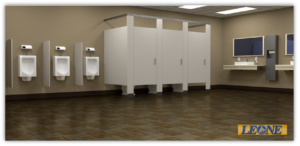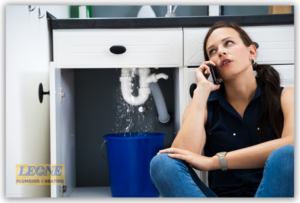 Dealing with a plumbing emergency can be a frantic and overwhelming experience. Burst pipes, overflowing toilets, or clogged drains can quickly turn your home into a chaotic mess. However, staying calm and taking immediate action is crucial to prevent further damage. Today, we will provide tips to help you confidently navigate plumbing emergencies. With a focus on staying calm and fixing the chaos, we will guide you through step-by-step solutions to common plumbing issues, ensuring that you have the knowledge to handle these situations effectively.
Dealing with a plumbing emergency can be a frantic and overwhelming experience. Burst pipes, overflowing toilets, or clogged drains can quickly turn your home into a chaotic mess. However, staying calm and taking immediate action is crucial to prevent further damage. Today, we will provide tips to help you confidently navigate plumbing emergencies. With a focus on staying calm and fixing the chaos, we will guide you through step-by-step solutions to common plumbing issues, ensuring that you have the knowledge to handle these situations effectively.
What Are The Common Plumbing Emergencies?
Plumbing emergencies can occur at any time, catching us off guard and causing significant disruption. Being aware of the most common plumbing emergencies can help you prepare and respond effectively. Here are a few scenarios you may encounter:
Burst Pipes
Burst pipes can result from freezing temperatures, aging pipes, or excessive water pressure. They can cause extensive water damage if not addressed promptly.Overflowing Toilets
A clogged toilet can quickly lead to an overflow, creating a messy and unsanitary situation. This can happen due to excessive toilet paper usage, foreign objects, or a plumbing blockage.Clogged Drains
Whether it’s a kitchen sink, bathroom sink, or shower drain, blockages can occur due to the accumulation of debris, hair, soap scum, or grease. Clogged drains can cause water backup and unpleasant odors.Leaking Faucets or Showerheads
A leaking faucet or showerhead not only wastes water but can also indicate underlying plumbing issues. Ignoring a small leak can lead to more significant problems down the line.Water Heater Malfunction
A malfunctioning water heater can result in cold showers or no hot water at all. This can be especially inconvenient during the colder months.The Importance Of Staying Calm During A Plumbing Emergency
When faced with a plumbing emergency, it’s natural to feel panicked and overwhelmed. However, staying calm is essential to assess the situation accurately and take appropriate action. Here’s why staying calm is crucial:
Clear Thinking
Panicking can cloud your judgment and hinder your ability to make rational decisions. By staying calm, you can think clearly and take the necessary steps to resolve the emergency.Preventing Further Damage
Acting hastily or without a clear plan can lead to additional damage. By remaining calm, you can minimize the risk of exacerbating the situation and causing more harm.Effective Communication
During a plumbing emergency, it’s essential to communicate clearly with any professionals you may need to call for assistance. Staying calm allows you to convey the details accurately and ensure that help arrives promptly.Essential Tools For Handling Plumbing Emergencies
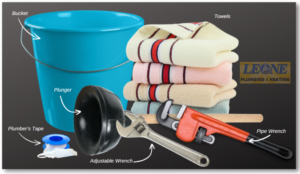 Now that you know the importance of staying calm during a plumbing emergency, let us explore the essential tools that you need. Having the right tools readily available can make all the difference in efficiently resolving a plumbing emergency. Here are some essential tools you should have in your toolkit:
Now that you know the importance of staying calm during a plumbing emergency, let us explore the essential tools that you need. Having the right tools readily available can make all the difference in efficiently resolving a plumbing emergency. Here are some essential tools you should have in your toolkit:
Adjustable Wrench
An adjustable wrench is a versatile tool that can be used to tighten or loosen various plumbing fittings. It’s essential for tasks like fixing leaks or replacing faucets.Plunger
A plunger is a must-have tool for dealing with clogged toilets and drains. It creates suction and helps dislodge blockages, allowing water to flow freely again.Pipe Wrench
A pipe wrench is specifically designed to grip and turn pipes, making it useful for tasks like tightening or removing pipe fittings. It’s a sturdy tool that can handle heavy-duty plumbing work.Plumber’s Tape
Also known as Teflon tape, plumber’s tape is used to seal pipe threads and prevent leaks. It’s an inexpensive yet effective tool for ensuring watertight connections.Buckets And Towels
Having a bucket and towels on hand can help contain water leaks and minimize damage. They are especially useful when dealing with burst pipes or overflowing toilets.Shutting Off The Main Water Supply
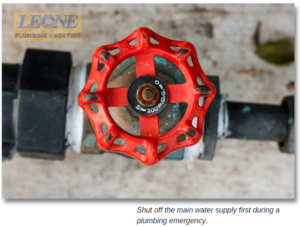
In the event of a plumbing emergency, the first step is to shut off the main water supply to your home. This will help prevent further water damage while you address the specific issue. It is a crucial step that should be taken as soon as possible in a plumbing emergency. Here’s how to do it:
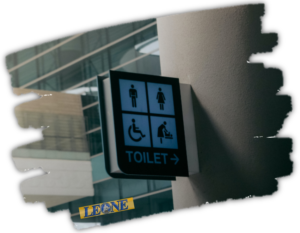 In businesses such as restaurants, malls, and airports, the number of people visiting public toilets is increasing daily. Therefore, it is critical that the public toilets are properly maintained for employees and customers. In a time when we are greatly affected by the COVID-19 pandemic, public toilet maintenance should be a priority to keep your employees and customers safe and healthy.
In businesses such as restaurants, malls, and airports, the number of people visiting public toilets is increasing daily. Therefore, it is critical that the public toilets are properly maintained for employees and customers. In a time when we are greatly affected by the COVID-19 pandemic, public toilet maintenance should be a priority to keep your employees and customers safe and healthy.
